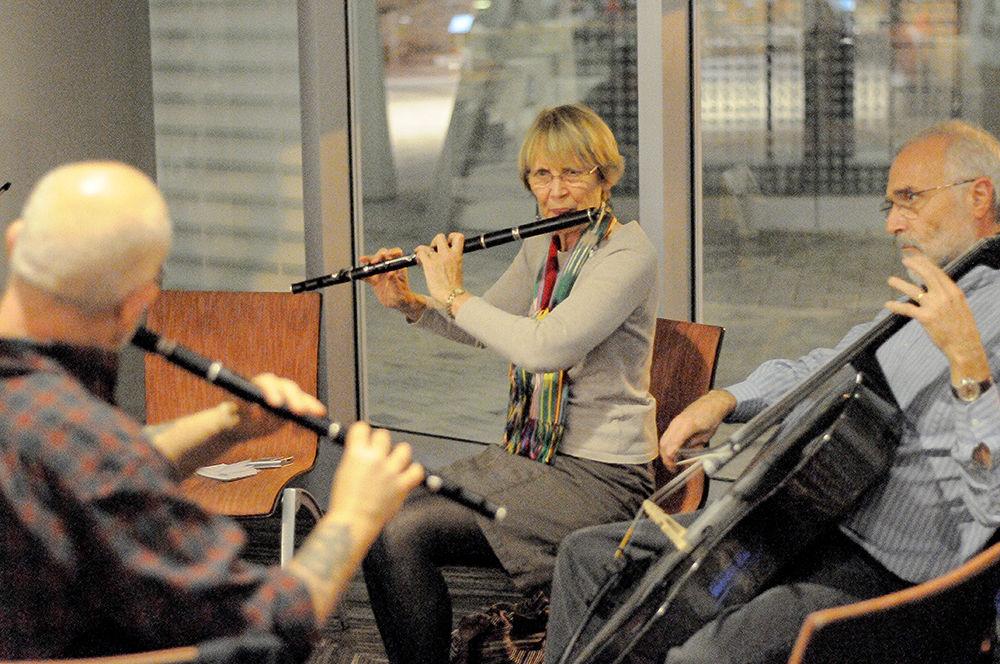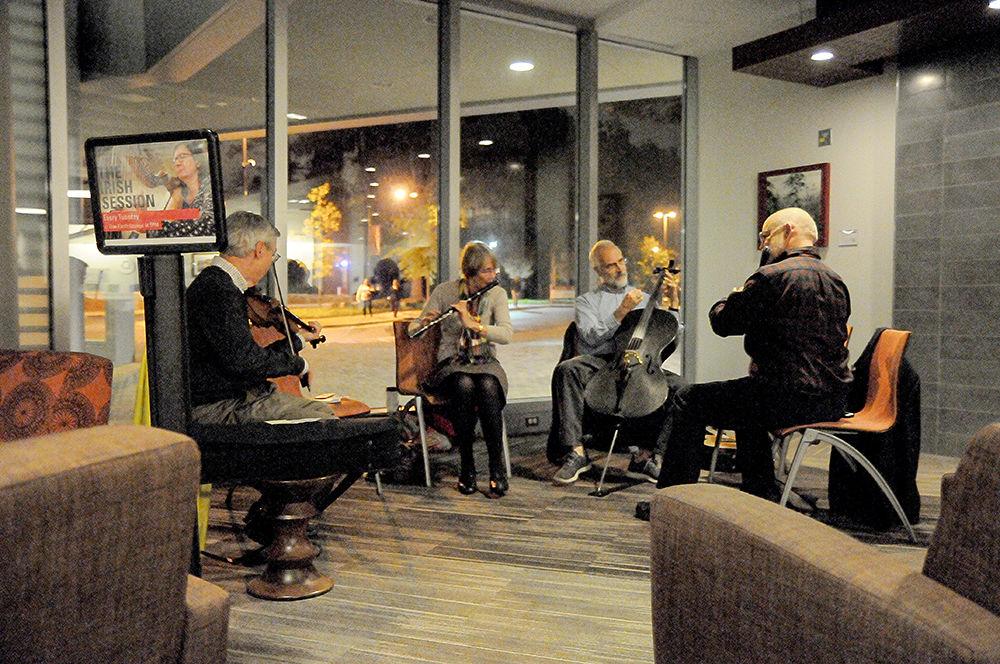When speaking to Alison Arnold, a lecturer within the music department and assistant teaching professor within the arts studies program, one is immediately charmed by the grace and elegance Arnold exudes. In addition to a pleasant demeanor, Arnold’s deep knowledge in the field of ethnomusicology is impressive. Born and raised in England, Arnold was well versed with music from a very young age as both her parents were musicians.
“I and both of my siblings knew how to play piano,” Arnold said. “However, I am the only one amongst the three of us who has taken up a career in music.”
Arnold completed her bachelor’s degree at the University of Liverpool in England, and got both her master’s degree and Ph.D. in music with a concentration in ethnomusicology from the University of Illinois at Urbana-Champaign. It was while pursuing a Ph.D. that Arnold developed a flair for the beauty of Asian music.
“I was studying different kinds of music at that time. But I felt the strongest pull towards Asian, and especially Indian Music,” Arnold said.
Now, Arnold teaches a course titled “Arts and Cross-Cultural Contacts” in both fall and spring semesters within the music department, and was nominated for the 2007-2008 Gertrude Cox Award for Innovative Excellence in Teaching and Learning with Technology.
The relationship between distinct cultures and music is a lengthy one, and acted as a prime point of interest for Arnold, who ultimately decided to pursue the diverse, unconventional route of specializing in ethnomusicology.
“Since the early 1900s music was being explored as a research field,” Arnold said. “However, the advent of ethnomusicology started during the 1950s. It is a hybrid of anthropology and music, which helps us understand the belief systems and cultures of different communities. Since it offered me the perfect opportunity to explore different types of music all over the world, I chose to explore it further.”
Prior to coming to North Carolina, Arnold taught everywhere from Colorado College to Pennsylvania State University at Abington to Drexel University.
“I moved [to] North Carolina because of my husband’s profession, which required us to relocate from time to time,” Arnold said.
After moving to North Carolina, Arnold began teaching at UNC-Chapel Hill, that is, until Jonathan Kramer, who was teaching a basic music course at NC State at that point in time, learned of Arnold and encouraged her to join the NC State music department faculty.
“By the time I came to know about Alison, she was already well-known as an editor of [the] South Asian Music section of the Garland Encyclopedia, her research in Bollywood music and her publication related to the Grove’s Dictionary,” Kramer said.
Kramer was initially surprised to find a person as passionate about ethnomusicology as Arnold, and eagerly brought her onto the team of music-teaching professors here at NC State. The two began sharing the course Kramer previously taught solo, developing the curriculum as a pair. After getting a grant from the University to digitize the course, Kramer and Arnold’s class was able to reach an even larger audience.
Over a period of 14 years, Kramer and Arnold wrote “What in the World is Music,” a book containing carefully detailed information on numerous categories and genres of music, complete with links to over 300 audio and visual *recordings and immense research conducted by the two.
“I feel that Alison is an extraordinary writer and scholar, and it has been a delight working with her during all this time,” Kramer said.
Arnold has worked on the music of the Montagnard community of North Carolina as well as Japan, Trinidad and elsewhere. She is also a proficient Celtic flute player and has developed an honors course in Celtic music for the University. Furthermore, Arnold teaches Asian music for the music department. The widely achieving professor holds a thriving second career as a musician, playing music all over the state. For Arnold, the most challenging part about her path to success was a personal one.
“My biggest challenge was in the decision to get married,” Arnold said. “I was not clear whether I wanted to start a family or dedicate my life to music entirely. After giving it a lot of thought, I decided on the former.”
With the wink of an eye, Arnold shared her advice for budding music researchers of all kinds.
“Do not come here if you seek a 9-to-5 job with lot of remuneration,” Arnold said. “This is only for the passionate — for ones who are willing to compromise a fair degree of financial stability for passion. If [you’re] not [that person], you will end up getting frustrated.”
Ultimately, Arnold acts as NC State’s very own ethnomusicology enthusiast, and proves that passion and hard work is the perfect recipe for a thriving career path.
Editors Note: the article originally said that Arnolds and Kramer’s book included 300 audio and visual lectures. The word has since been changed to recordings.
Assistant professor Alison Arnold performs Irish folk songs and alongside other musicians as part of "The Irish Session" in the One Earth lounge area on Tuesday, Nov. 7. The Irish Session performs every Tuesday during the semester at 5:00pm at One Earth. The group welcomes newcomers of varying skill level and perform a concert once per semester in Stewart Theater.














